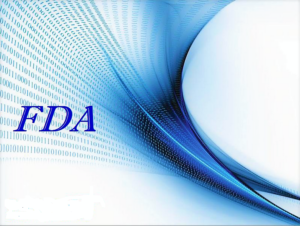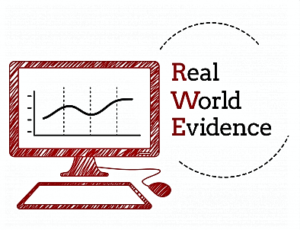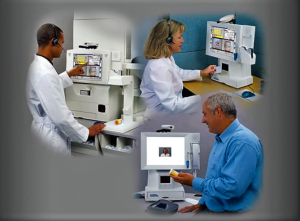- NACDS-backed e-prescribing bill to fight opioid abuse passes (chaindrugreview.com)
Legislation backed by the National Association of Chain Drug Stores to help address the opioid abuse epidemic was passed today by the House of Representatives Energy and Commerce Committee. The bill – the Every Prescription Conveyed Securely Act (H.R. 3528) – would require electronic prescribing for Schedule II through V controlled substances prescriptions covered under Medicare Part D to help prevent fraud, abuse and waste...Leveraging the benefits of electronic prescribing to help address the opioid abuse epidemic is one of the priority policy recommendations of NACDS, based on the experiences of pharmacists on the front lines of healthcare delivery.”...The concept of the Every Prescription Conveyed Securely Act maintains strong public support. In a January 2018 national survey conducted by Morning Consult...76% supported rules that all prescriptions must be handled electronically, rather than by paper or fax, as a way to help address the opioid abuse epidemic...The Senate companion legislation of the Every Prescription Conveyed Securely Act is S. 2460, introduced by Sens. Michael Bennet (D, Colo.) and Dean Heller (R, Nev.)...would need to be passed...prior to its proceeding to President Trump for consideration and signature...
- Blockchain for pharma: DHL, Imperial and Authentag embrace ledger tech (in-pharmatechnologist.com)
Three contract services firms have launched separate Blockchain-based initiatives, in a bid to increase pharmaceutical supply chain security...Blockchain – a digital ledger technology which records data in a secure, chronological way – has attracted attention in the pharmaceutical industry, as US and European serialisation deadlines approach...logistics firm DHL announced a collaboration with technology provider Accenture, to team serialization services with product verification, using a Blockchain ledger platform...The firms have created a ‘prototype simulation’ service, in order to track and trace pharmaceutical products throughout the entire supply chain...By sharing databases between multiple parties, Blockchain essentially removes the need for intermediaries who were previously required to act as trusted third parties to verify, record and coordinate transactions...Authentag announced its Blockchain-based Distributed Ledger Technology project...Our latest platforms will provide an open source architecture to allow members of the pharmaceutical community to develop their own solutions, improving the safety and security of pharmaceutical products...
- 2017 was a big year for FDA digital health regulations (healthcareitnews.com)
With a new administrator at the helm, the U.S. Food and Drug Administration took steps toward regulating decision support, software-as-a-medical-device, mobile tech in clinical trials and more...the FDA had a full plate in 2017 as it sought to revise its regulatory processes for the shifting healthcare landscape...the new guard already had announced and implemented a firm-focused pre-certification program, released new guidances addressing provisions of 2016's 21st Century Cures Act, and outlined a handful of other ongoing initiatives that are sure to impact the digital health industry. Here's a rundown of the agency's actions and announcements during 2017.
- New leadership, new approaches
...a plan that included clear language on which devices the agency would look to regulate, an app regulation strategy involving postmarket data collection, and other idea designed to streamline the approval process...FDA opened up applications for a pilot of a firm-focused digital health pre-certification program...nine companies selected to participate: Apple, Samsung, Verily, Pear Therapeutics, Tidepool, Phosphorus, Fitbit, Roche, and Johnson & Johnson...draft of the long-awaited and somewhat controversial guidance on clinical decision support, which laid out the forms of clinical decision support that would or wouldn't be regulated based on the degree of human involvement (as opposed to risk)...draft guidance describing the FDA's new Breakthrough Devices Program...would supersede the Expedited Access Pathway and aims to push novel technologies presenting a significant improvement over status quo through the clearance process more quickly.
- FDA shifts toward digital, patient feedback
...the Clinical Trials Transformation Initiative – a public-private partnership of pharma companies, academics, and regulators including the FDA – released new endpoint recommendations for the use of mobile technologies in clinical trials... The guidelines, meant to be the first in a series of such documents, included suggestions for study designers when selecting novel endpoints, practical approaches when developing these endpoints...
- New leadership, new approaches
- Rx precision medicine tool latest to be integrated into clinical workflow (healthcareitnews.com)
Translational Software recently became the latest in a growing number of health IT vendors creating systems to advance precision medicine with its debut of its PGx pediatric platform. Another precision medicine player stepped into the market...with a product designed to be integrated smack dab in the middle of a physician’s clinical workflow. 2bPrecise, a cloud-based precision medicine platform vendor and an Allscripts company, launched a pharmacogenomics (PGx) system to bring crucial data to the clinical workflow...2bPrecise Pgx...makes pharmacogenetic information accessible so physicians can make better informed treatment decisions based on a patient’s unique genetic makeup...The 2bPrecise PGx system plugs into an EHR’s native workflow and can integrate content from Translational Software (a genomic data-based clinical decision support system) and other knowledge sources to enable precision medicine-based decision making at the point of care. 2bPrecise’s PGx system is part of its larger precision medicine platform, built to capture and store genomic data from a range of sources, enabling the harmonization of clinical knowledge and genomic research to extract patient-specific insights.
- DEA to share prescription drug data with 50 attorneys general, crack down on drugmakers (fiercehealthcare.com)
The Drug Enforcement Agency has reached an agreement with 50 attorneys general to share prescription drug data with one another to support ongoing investigations...from its Automation of Reports and Consolidated Orders System, which collects 80 million prescription drug transactions from manufacturers and distributors each year...Attorney General Jeff Sessions...said the data-sharing pact will “make both the DEA and our state partners more effective at finding evidence of crime.”...Exactly how that data sharing agreement would operate remains fuzzy...
- Big pharma, big data: why drugmakers want your health records (reuters.com)
Drugmakers are racing to scoop up patient health records and strike deals with technology companies as big data analytics start to unlock a trove of information about how medicines perform in the real world...Studying such real-world evidence offers manufacturers a powerful tool to prove the value of their drugs...Real-world evidence involves collecting data outside traditional randomized clinical trials, the current gold standard for judging medicines, and interest in the field is ballooning...The ability to capture the experience of real-world patients, who represent a wider sample of society than the relatively narrow selection enrolled into traditional trials, is increasingly useful as medicine becomes more personalized...It’s getting more expensive to do traditional clinical trial research, so industry is looking at ways it can achieve similar goals using routinely collected data...The thing that has made all this possible is the increasing digitization of health records...Food and Drug Administration...believes more widespread use of real-world evidence (RWE) could cut drug development costs and help doctors make better medical choices...Under the 21st Century Cures Act, the FDA has been directed to evaluate the expanded use of RWE...As the breadth and reliability of RWE increases, so do opportunities for FDA to also make use of this information...
- From hackers to hurricanes, new threats loom for pharma supply chains in 2018 (fiercepharma.com)
Disasters, both natural and manmade, wreaked havoc on pharma supply chains this year, exposing vulnerabilities and costing the industry hundreds of millions, if not billions, of dollars...Hurricanes took out power and plants in Puerto Rico...Less visible but much more sinister was the cyberattack that managed to penetrate systems at Merck & Co...Experts say both kind of threats are only going to get worse...Some natural disasters, like earthquakes, don’t follow seasons and can’t be tracked. They just happen...The FDA pointed out that the Federal Food, Drug, and Cosmetic Act, does not include a specific provision giving the agency the authority to require a contingency plan for preventing drug shortages if a facility goes offline, regardless of the cause...Some events have nothing to do with weather or geography. Merck was the only drugmaker to publicly acknowledge that it had not adequately protected its computer systems and was a victim of the Petya cyberattack...Expect this trend to continue in 2018...the disruption caused by ransomware to industrial organizations in 2017 didn’t directly affect the automation controllers, “we expect that a new, more damaging type of ransomware will specifically target controllers” in 2018...if those threats were not enough to keep pharma executives up at night...the chilling observation that North Korea, “has quietly developed a cyber army capable of unleashing attacks against critical infrastructures that could have global implications.”
- Insurers will study blockchain to fix their provider lists (cnbc.com)
As a patient, finding a doctor in-network on your health plan can make a big difference when it comes to out of pocket costs. For insurers and the doctors they contract with, finding a better way to keep provider lists up to date, could make a big difference when it comes to administrative costs...The administrative costs of updating and tracking down that information are estimated to be more than $2 billion dollars a year for the health-care industry...in 2016 federal health officials found that nearly half of provider listings for Medicare Advantage plans were inaccurate, with incorrect provider addresses and phone numbers...Now, UnitedHealth Group and its Medicare rival Humana are launching a pilot program together to study whether blockchain technology, with its system of decentralized ledgers, can help fix the problem...Regulators at...the Centers for Medicare and Medicaid Services, may start fining Medicare insurers up to $25,000 a day for inaccurate provider lists, so it's a problem the industry is anxious to resolve for their doctors, their patients and their bottom lines...
- Telepharmacy at rural hospitals provides big savings, quality improvements (healthcareitnews.com)
Grand River Hospital and Medical Center, a 13-bed critical access hospital in Western Colorado which sees an average of seven patients a day, has saved about $300,000 in staffing costs by using telehealth tools to establish a round-the-clock pharmacy...Telehealth products and services is on the rise among small and rural hospitals...for instance, NewYork-Presbyterian forged a pact to provide emergency physicians via Walgreens in-store kiosks...Cleveland Clinic inked an arrangement with CVS to use American Well’s telemedicine platform to make clinicians accessible for visits from CVS Minute Clinics in Ohio...Telepharmacy has become its own specialty among tech vendors, including CPS TELEpharmacy, eVisit, PipelineRx, ScriptPro Telepharmacy and TelePharm...Nancy McClew, PharmD, director of pharmacy at Grand River Hospital and Medical Center, said the investment in the telemedicine technology is well worth it compared with the cost of staffing the pharmacy 24/7...“Grand River also has generated savings through tele-pharmacist interventions, the majority of which are safety related – clarifications, QI, prevention, renal assessment, therapeutic,” McClew said. “In Q3 2017, pharmacists documented more than 350 interventions, representing more than $50,000 in cost savings.”
- Artificial Intelligence: will it change the way drugs are discovered? (pharmaceutical-journal.com)
The pharmaceutical industry is beginning to invest in artificial intelligence (AI), with many large pharmaceutical companies partnering with AI start-ups in 2017 in order to develop better diagnostics or biomarkers, to identify drug targets and to design new drugs. But when will the first AI-designed drugs reach the market and will AI permanently change the pharmaceutical industry and the way drugs are discovered?...Harnessing the power of modern supercomputers and machine learning will enable us to develop medicines more quickly, and at a reduced cost...The technology has just taken off recently and primarily that’s due to the advances in deep learning that have demonstrated superhuman accuracy in image recognition and autonomous driving...We are starting to see AI can outperform humans when analysing very complicated datasets for high content, phenotypic drug discovery...The [AI] technology is allowing us to explore a much bigger design space and discover these rare molecules that have properties beyond what we would get if we just ran a traditional high throughput screen...We can benefit from computer modelling but we still need to conduct real experiments and there will still be an element of serendipity...










